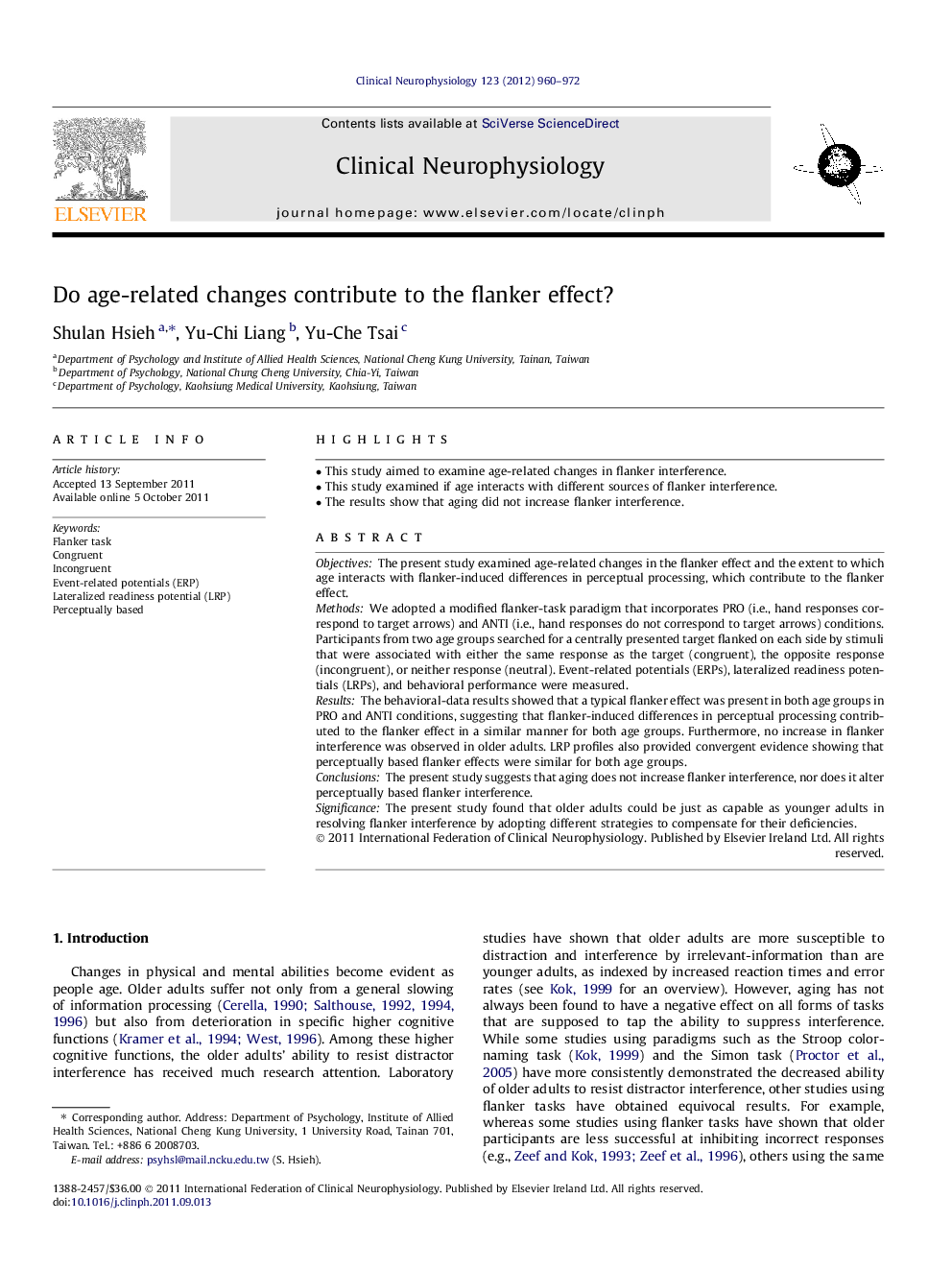| کد مقاله | کد نشریه | سال انتشار | مقاله انگلیسی | نسخه تمام متن |
|---|---|---|---|---|
| 3045289 | 1185018 | 2012 | 13 صفحه PDF | دانلود رایگان |

ObjectivesThe present study examined age-related changes in the flanker effect and the extent to which age interacts with flanker-induced differences in perceptual processing, which contribute to the flanker effect.MethodsWe adopted a modified flanker-task paradigm that incorporates PRO (i.e., hand responses correspond to target arrows) and ANTI (i.e., hand responses do not correspond to target arrows) conditions. Participants from two age groups searched for a centrally presented target flanked on each side by stimuli that were associated with either the same response as the target (congruent), the opposite response (incongruent), or neither response (neutral). Event-related potentials (ERPs), lateralized readiness potentials (LRPs), and behavioral performance were measured.ResultsThe behavioral-data results showed that a typical flanker effect was present in both age groups in PRO and ANTI conditions, suggesting that flanker-induced differences in perceptual processing contributed to the flanker effect in a similar manner for both age groups. Furthermore, no increase in flanker interference was observed in older adults. LRP profiles also provided convergent evidence showing that perceptually based flanker effects were similar for both age groups.ConclusionsThe present study suggests that aging does not increase flanker interference, nor does it alter perceptually based flanker interference.SignificanceThe present study found that older adults could be just as capable as younger adults in resolving flanker interference by adopting different strategies to compensate for their deficiencies.
► This study aimed to examine age-related changes in flanker interference.
► This study examined if age interacts with different sources of flanker interference.
► The results show that aging did not increase flanker interference.
Journal: Clinical Neurophysiology - Volume 123, Issue 5, May 2012, Pages 960–972